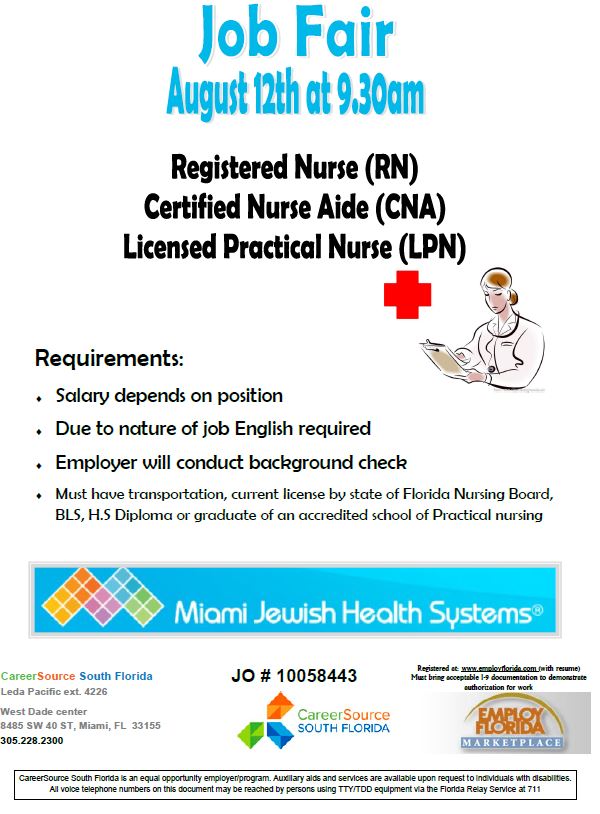“My job is SO stressful!”
Most people think they have the most stressful job – that’s only natural. And without doubt, almost every job has unique brands of stress. But let’s face it, there are some jobs that are just way more stressful than others. But which ones are they and what makes them so?
We did a bunch of research on stressful occupations and there are tons of opinions. Many publications publish annual lists on the topic and some even reach out to experts who examine factors such as hours, working conditions, and consequences of mistakes. We examined the jobs in these articles, compared them to the jobs in our database, and chose our own top ten stressful jobs.
Teacher
Job title: Teacher Annual median salary: $55,390
Yeah yeah, we can hear some of you expressing disbelief right off the bat. Yes most teachers get summers off and many get automatic pay raises. We know. But there is a flip side to that coin
First of all teachers are never going to get rich teaching. Second, most teachers are working well outside the times between the first and final bell by grading papers, going over curriculum, etc. Third, teachers have an unbelievably crucial responsibility to shape the minds of young people and properly prepare them for life after graduation. Failing to do so literally endangers the future – for both the students and society in general. And finally there’s the stress of dealing with most students every day. That’s normally enough stress right there to last a lifetime.
Social worker
Job title: Social worker Annual median salary: $48,671
Imagine being placed into emergency situations where potential abuse or violence is taking place. No one else wants to step in, so it falls to you to deal with the aftermath and you’re getting paid peanuts.
This is life as a social worker.
Social workers have to advocate for those who are often in dire straits and dealing with one or more crises. While they help families plan next steps and offer education on various topics, they also must be an understanding and sympathetic ear while witnessing heartbreaking family and personal situations. Add to that the fact that social programs are constantly underfunded yet the demand constantly grows, and you have fewer dedicated social workers trying to do more work with less support.


Newspaper reporter
Job title: Newspaper reporter Annual median salary: $37,942
Life as a print journalist is not easy.
First of all the pay is low and very few strike it rich as a newspaper reporter. But the reasons the stress levels are so high are because the job is demanding in many respects. This is a job with long and unpredictable hours covering meetings, trials, and breaking news. It’s not uncommon to work all day on a story, receive follow-up calls from editors well after you’ve handed the story in, and then get called in the middle of a night to cover a murder or major accident. Good reporters are never really off duty.
Also, the industry is not faring well at the moment because leaders still haven’t figured out a way to adequately monetize the product. That means many papers are downsizing (with some even shutting down completely) as fewer reporters try to do more with less – a stressful issue that looms over almost every reporter at the moment.
Emergency dispatcher
Job title: Emergency dispatcher Annual median salary: $34,262
The first half of this job title is a big tipoff as to why it’s on our stressful jobs list.
When people call police and fire for help, officers and firefighters respond. But those officials only get to where they’re going because of the dispatchers, who are at the front lines of many emergencies and who often mean the difference between life and death. Dispatchers not only have to collect the address from the caller and pass it on to police, they are relied upon by first responders to ensure safety.
For instance, a dispatcher may have to give life-saving information to the caller such as how to perform CPR or the Heimlich, all the while relaying information to responding personnel. And those officers need the dispatcher to find out how many people are in a building, if anyone is injured, armed, etc. before they get there. Mistakes by dispatchers can end with people getting hurt or, in extreme circumstances, killed.
Registered Nurse - ER
Job title: Registered nurse – ER Annual median salary: $66,517
Think about the last time you were in the hospital. You probably only saw the doctor a handful of times, right? It’s the nurses who take care of the details and upon whom you rely for most things.
The emergency room of any hospital is a hectic and chaotic place. Medical professionals are running every which way to determine who is a priority and who needs which treatments. There’s trauma almost everywhere you look, not to mention blood and other bodily fluids. Nurses are the link between patients and doctors, and are responsible for much of the routine care before and during treatment. Everything from catheters to getting patients another warm blanket is done by a nurse. Doctors rely on them, patients rely on them, and when mistakes are made regarding peoples’ health, the results can be catastrophic.
Police officer
Job title: Police officer Annual median salary:$51,063
If your job consists of potentially putting your life on the line every time you punch in, that’s stressful.
Police officers never know what they’ll be dealing with on any particular shift. From breaking up domestic disputes to high speed chases to shootouts, it’s all on the table. Even routine speeding tickets can turn deadly at a moment’s notice, which is why police officers can never drop their guard for a second.
Commerical airline pilot
Job title: Commercial airline pilot Annual median salary: $119,958
Soar miles above the Earth while traveling hundreds of miles per hour with a few hundred people entrusting you with their lives? That can be stressful.
Yet that’s exactly what commercial airline pilots do day after day. Sure the technology today is advanced and some people claim “the planes basically fly themselves,” but try telling that to pilots like Capt. Chesley Sullenberger, who had to land his plane in the Hudson River when he encountered engine problems. Pilots who make mistakes risk being the cause of hundreds of deaths, making this a well-earned spot on our list.
Firefighter
Job title: Firefighter Annual median salary: $42,631
Firefighters choose an occupation that consists of running into a burning building when everyone else is trying like hell to get out.
This is yet another profession on our list that only exists because people are in dire straits and in need of rescue. And while much of the job is battling infernos at homes, schools, and offices, many firefighters are also licensed EMTs who assist at accident scenes and other endeavors like water rescues. Working conditions are hazardous and dangerous to one’s health, lives are on the line each and every shift, and the very real possibility of burning to death (or seeing someone burned) exists at all times. It’s the definition of stressful.
Surgeon
Job title: Surgeon Annual median salary: $342,520
I understand it’s easy to look at that salary and wonder how anything can be stressful when you’re making that much money. But hear me out.
Surgeons are literally cutting you open. Sometimes they take bad stuff out, other times they put good stuff in, and most other times they’re fixing what’s wrong. But the fact remains, these highly trained and qualified people are cutting you to operate on you and tinker with your insides. Any time you’re dealing with opening up the human body, there’s a large amount of stress involved.
As a surgeon, you’re responsible for the life of the person on your table each and every time. And with so many things that can go wrong as you battle to make it right, it has to take a toll knowing one mistake – one wrong move – means you’re forever responsible for someone dying.
Enlisted military personnel
Job title: Army Private – E2 Annual median salary: $18,127
I listed Army because we don’t have salaries for the other branches in our database, but they would certainly apply here too.
Bottom line -- this job consists of going through basic training, learning the skills necessary to fight in combat, and then going over to a foreign country if necessary to go up against enemy forces. It is a job that all too often involves killing or being killed, watching the back of the person next to you, and witnessing unthinkable acts of horror and violence. And even if soldiers make it home, they still have to battle things like PTSD. The kicker is it’s a job for which everyone volunteers.
In my book there’s nothing more stressful than war and protecting freedom, which is why this job lands as #1 on our list with great respect.































